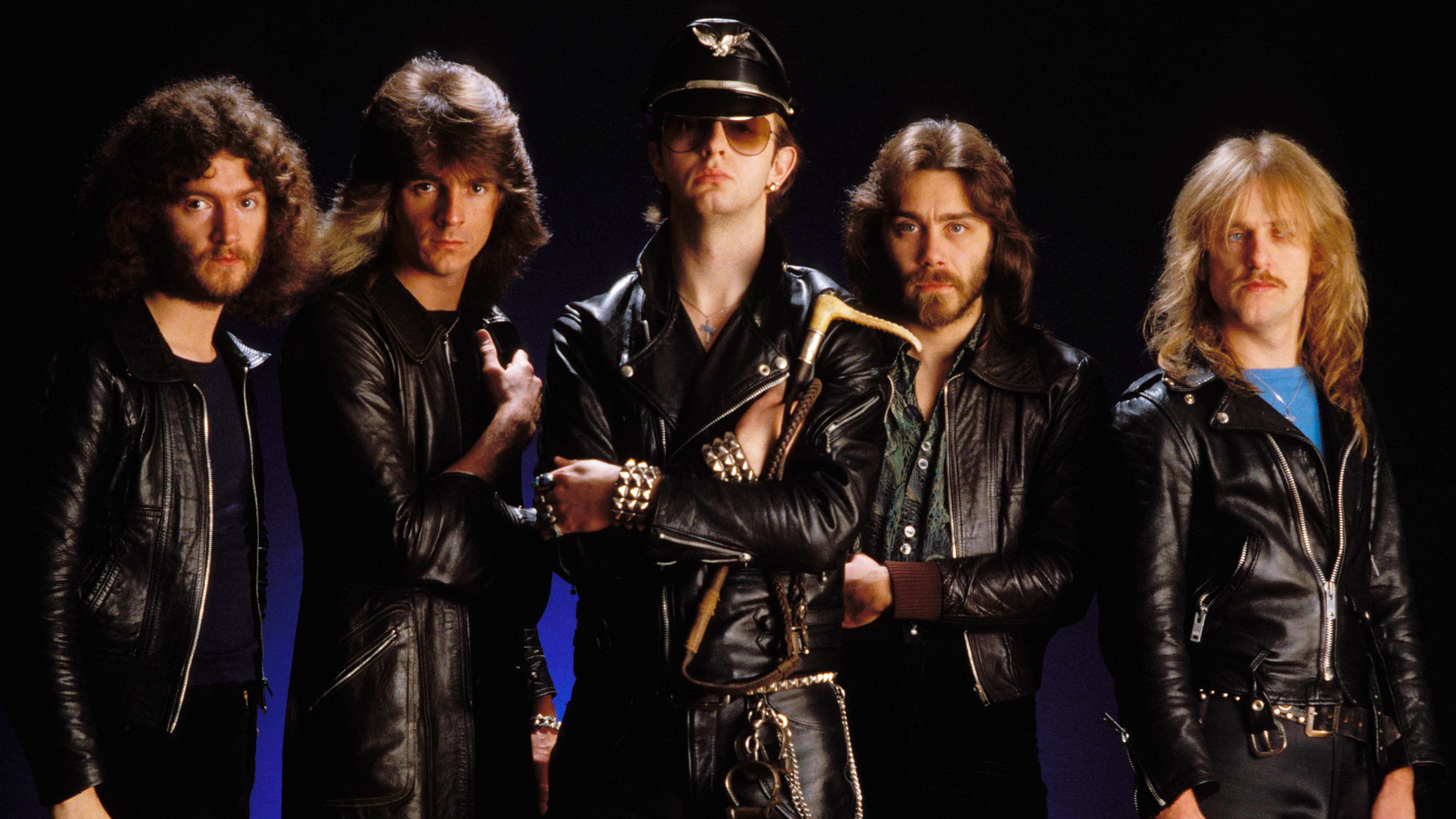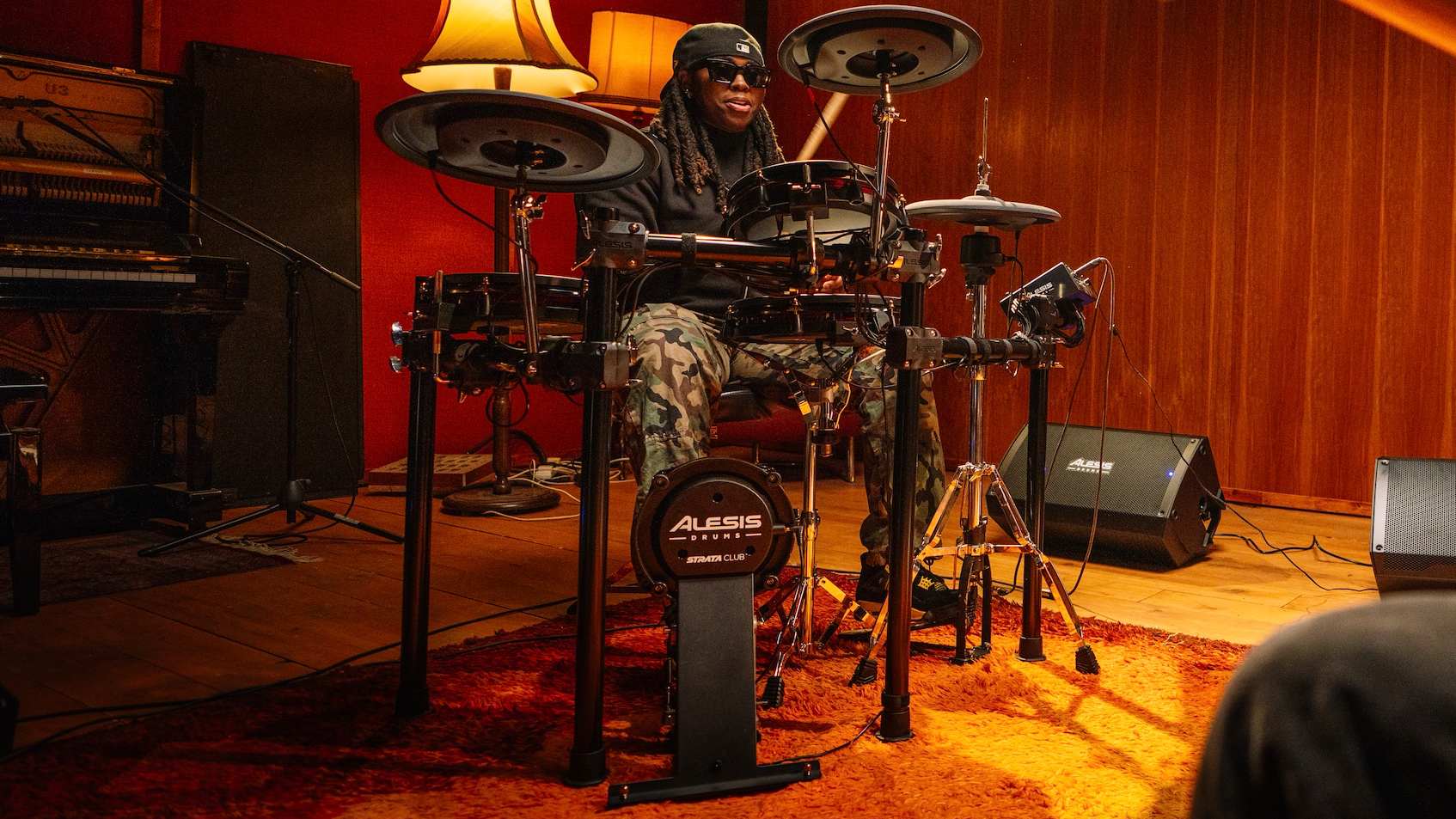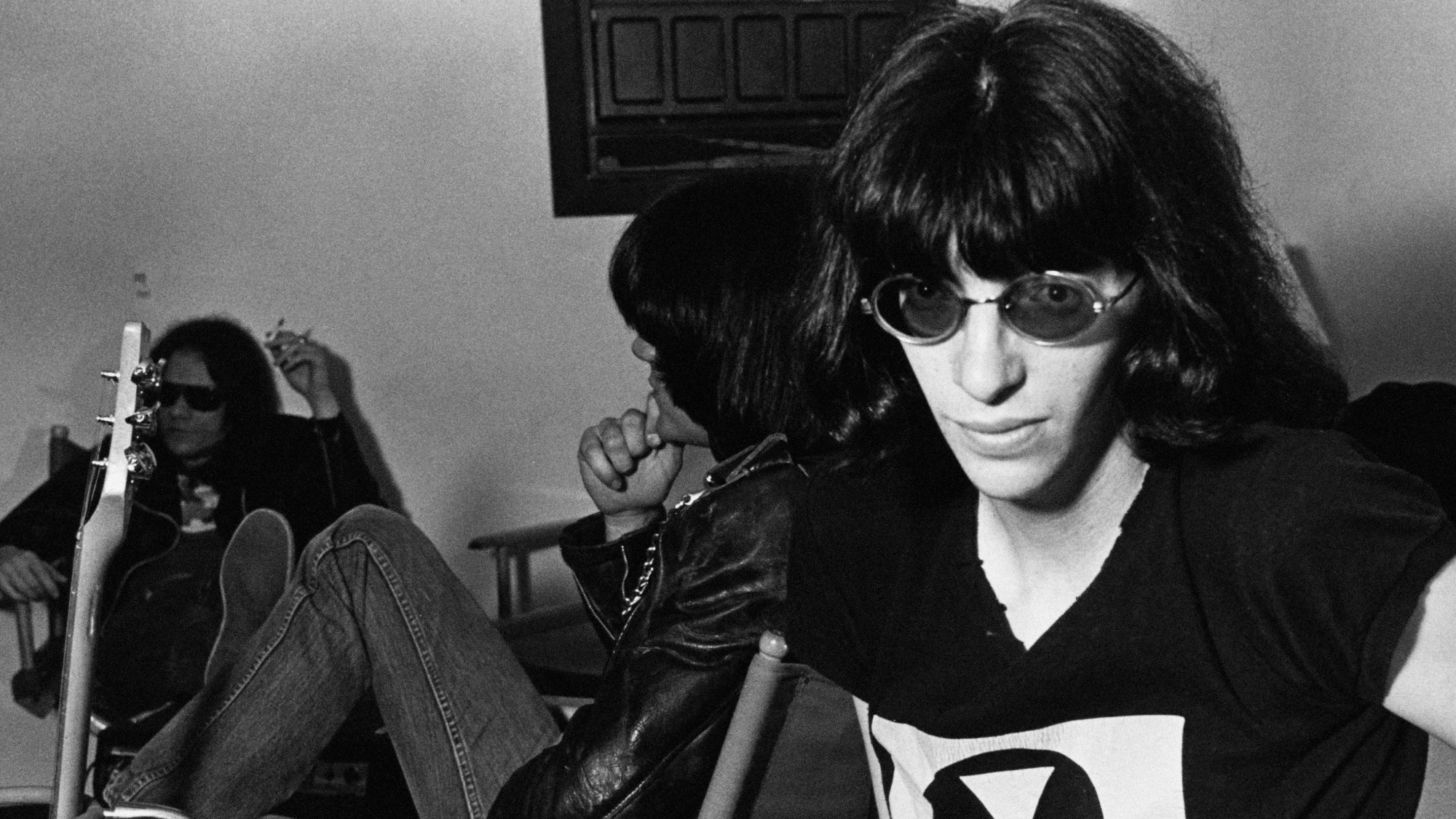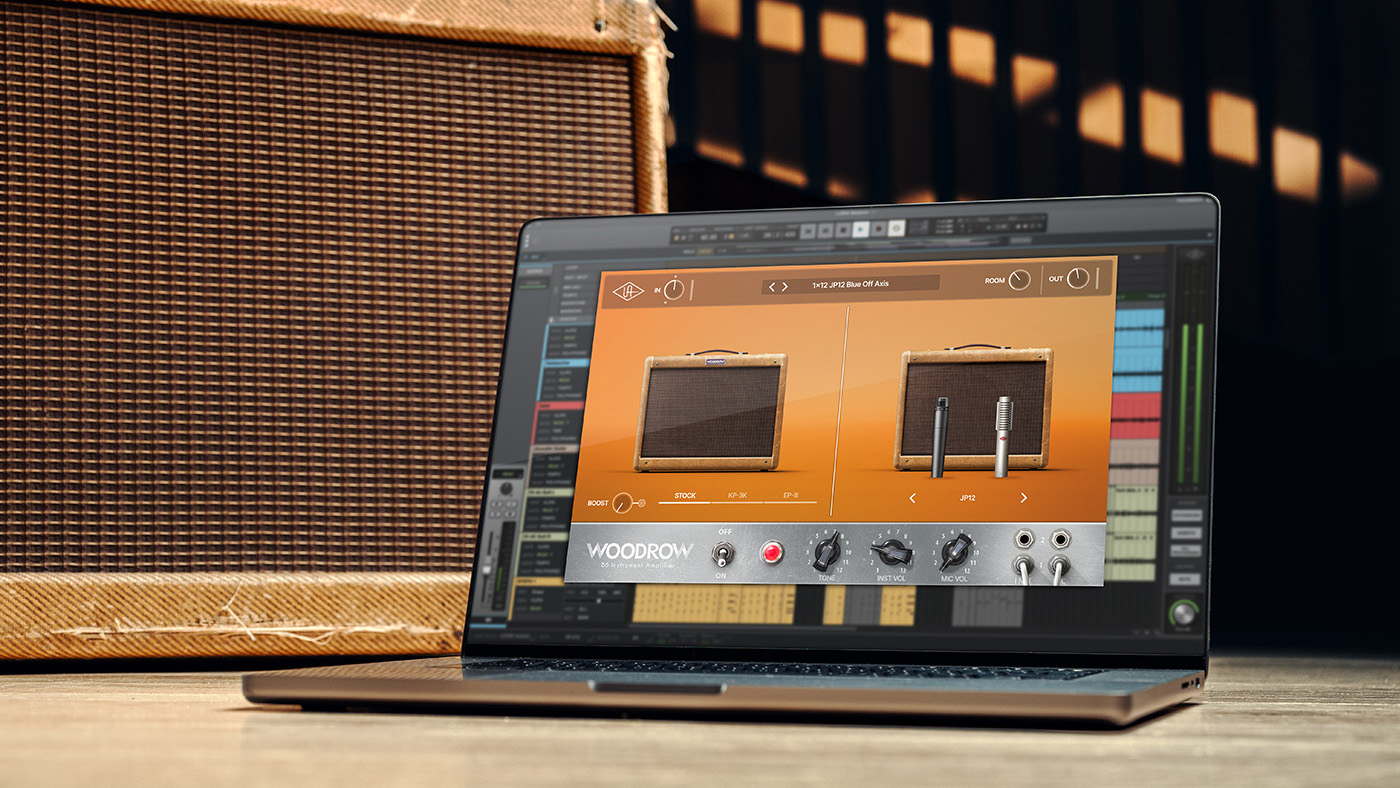Joe Satriani: 10 guitarists that blew my mind
Satch's pick of the pickers

Introduction
“It’s no surprise,” says Joe Satriani when picking his 10 most mind-blowing guitar players. “I was born in ’56 and I picked up the guitar seriously in 1970, so the heroes were really Hendrix, Page, Clapton… All of those guys.”
"I'd try and figure out, 'Wow, how can these guys be so different with the same six strings?'"
Locked in his room with a guitar, a little amp and “maybe 10 records” Satriani spent a chrysalis-like period the early 1970s studying his beloved six-string sensei.
“I’d just go through each record every day and try and figure out, ‘Wow, how can these guys be so different with the same six strings?’” he recalls. “All I knew is that each guitar player made me feel differently when they played.”
Now Joe's an established guitar god in his own right – indeed, his 15th studio album Shockwave Supernova lands 24 July – but here, with customary humour and insight, he talks us through the players that made the man…
Pre-order Shockwave Supernova today in exclusive bundles at WWW.SATRIANI.COM or at iTunes or Amazon
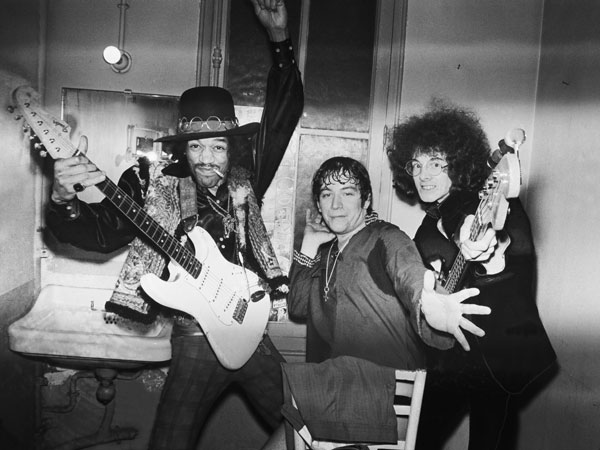
Jimi Hendrix
“Let’s start with Hendrix. He was the first guitarist that really made me think that the guitar could sound like anything and that it could inspire you to think about other things, other than songs about boys and girls and driving fast cars – all of those things that were part of ‘60s music.
"I remember almost struggling to get through Third Stone From The Sun because it was so cathartic"
"He used his guitar to represent the sounds of not only the world around him, but some sort of inner yearning, confusion and a whole range of emotions.
"I remember almost struggling to get through Third Stone From The Sun, not because it was hard to listen to but just because it was so cathartic, I just loved to listen to it so much. Some days I had to take it first half and then the second half later in the day! He was the first guitarist to totally blow my mind and he continues to do so…"
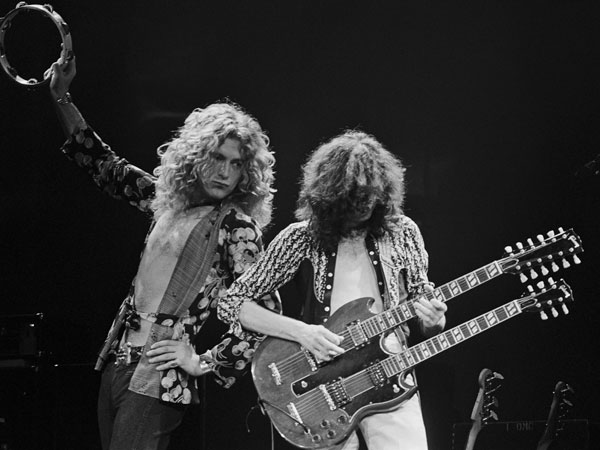
Jimmy Page
“Jimmy Page was a contemporary of Hendrix, but so totally different. You have to imagine a little kid called Joe Satriani, Italian-American, growing up in New York would view a British guitar player as being exotic.
"He sounded so ethnically different to what I grew up with, which was the blues and RnB that was right next door"
“We don’t think of it now, the two worlds are so intertwined, but for a little kid growing up on Long Island, England was far away and mystical! He sounded so ethnically different to what I grew up with, which was the blues and RnB that was right next door.
“I’ve always loved guitar players who throw caution to the wind and just go for it. That’s part of the vibe of rock ’n’ roll. Every time I need to dig into a Led Zeppelin song for a show, I’m reminded again [of his explosive playing and British folk influences] and you think, ‘Wow, that is so odd! Who does that?’”
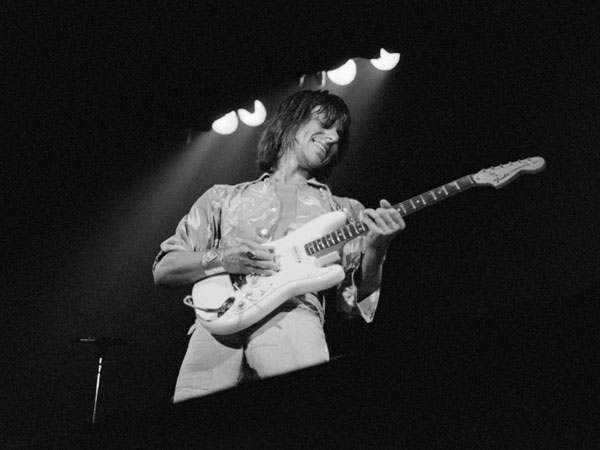
Jeff Beck
“Beck really distinguished himself for a number of reasons. He had a totally different way of looking at the musical canvas and saying, ‘I’m going to do just three strokes and it’s going to sound like music.’ And he would pull it off and you’d go, ‘Oh my god, he just did nothing, but it’s brilliant!’
"It was a remarkable revelation, when you’re that young, to realise that it’s OK to take a different path"
“Where’s it coming from that he can be on the outside and then just dive in at the right moment to create such a beautiful and powerful musical statement?
“I would put his style of music against Jimmy Page and think, ‘This is really great. Here are two guys, growing up together, friends, but it was just so completely different.’
“It was a remarkable revelation, when you’re that young, to realise that it’s OK to take a different path, because here are two guys making fantastic music, but they do things in an entirely different way.”
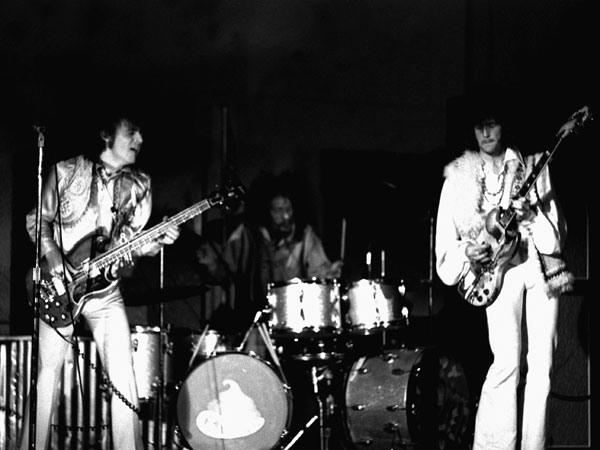
Eric Clapton
“Hendrix, Page and Beck would always go right to the edge of the cliff – and didn’t mind just falling off, which was always exhilarating – but Clapton had this other thing. He played like someone who could really sing well. And his tone was beautiful.
"He wasn’t as much of a blues purist as people like to remember"
“Back in the early days his tone changed a lot, it wasn’t that one sound that everyone tends to think about. He experimented. He was part of an artistic movement that wanted to turn everything on its head and he wasn’t as much of a blues purist as people like to remember.
“The other thing was that I noticed very much was that he could sustain interest for long periods of time without going to 11! 11 was where Hendrix, Page and Beck always somehow wound up. Clapton was always like, ‘I’m just going to sit here at eight and a half!’”
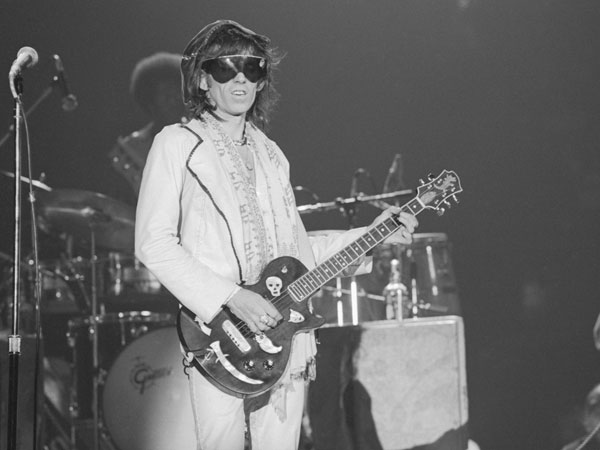
Keith Richards
“Richards figures big in my mind. The Beatles and The ‘Stones were my biggest influences as a little kid. My older sisters were completely crazy about anything British, so I heard that stuff playing in every room of the house.
"Those guitarists become your heroes – the ones that are not afraid to get the Telecaster to sound like daggers."
“As I became a guitar player, I just thought Keith Richards was the coolest. He would come up with these riffs and the tunings and the way that Glynn Johns would record him soloing would just take your head off.
"When you’re young and rude and angry, you just gravitate towards that. Those guitarists become your heroes – the ones that are not afraid to get the Telecaster to sound like daggers.
“A lot of the early punk bands that I was hanging around with in the mid-‘70s in New York City, they held that era of Keith Richards in high regard. That was the foundation, whether they wanted to admit it or not!”
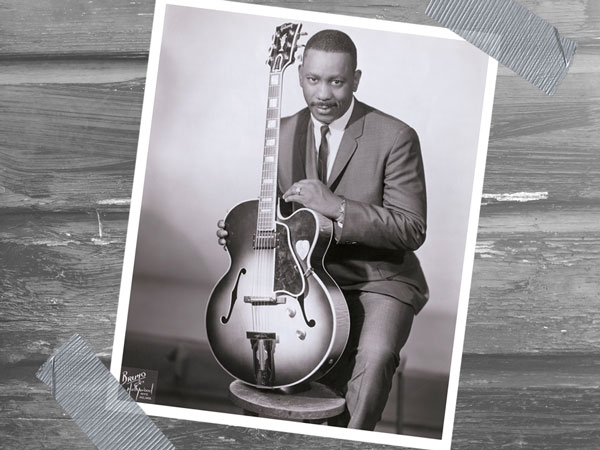
Wes Montgomery
“At the same time as Keith Richards, I was also influenced by Wes Montgomery. This is because my parents were jazz age kids and they listened to jazz music all of the time in the house.
“Round Midnight… the live albums are impeccable, unbelievable documents of the musicianship and coolness of that era.”
“So I grew up hearing The Beatles and ‘Stones, and Chuck Berry and Muddy Waters, then I was also hearing Wes Montgomery every day.
“When I heard Hendrix, I heard that Hendrix was also a fan of Wes Montgomery. I saw the connection and it sort of legitimised me as a young, long-haired, motorcycle boot-wearing kid, it allowed me to like Wes Montgomery and tell my friends, ‘You know, Hendrix listened to this guy! He plays with octaves and he never makes a mistake!’
“I always liked the feel of jazz and the ethos of improvisation. Round Midnight… the live albums are impeccable, unbelievable documents of the musicianship and coolness of that era.”
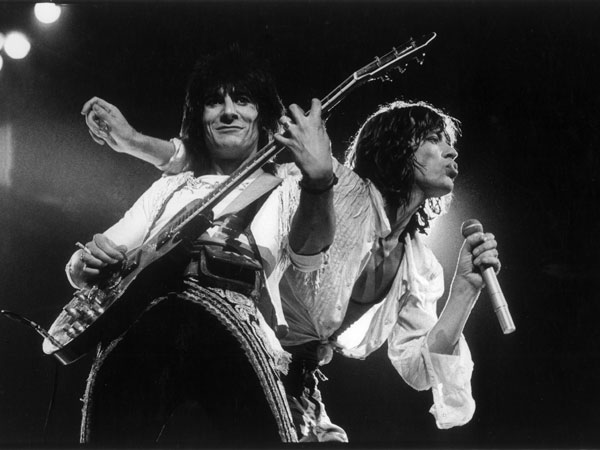
Ron Wood
“Being a punky guitar player from New York, I was transfixed by the effect of Ron Wood on the variety of bands he’s been in and eventually the ‘Stones.
"He’s been able to be so well integrated into the changing attitudes of all the bands that he was in"
“He’s been able to be so well integrated into the changing attitudes of all the bands that he was in, but at the same time he’s created a sound that people know as ‘The Ron Wood’ sound.
“How many people can you say that about? That have created an attitude and a sound that almost supersedes what you’re going to say. If you mention Holdsworth, you might say ‘legato’, or Eddie Van Halen, ‘tapping’, but with Ron Wood you don’t get down to a particular physical move. It’s the whole approach.
“He always looks good, too! How does he still look like the cool guitar player that you want to emulate? There should be an award for that and he should win it!”
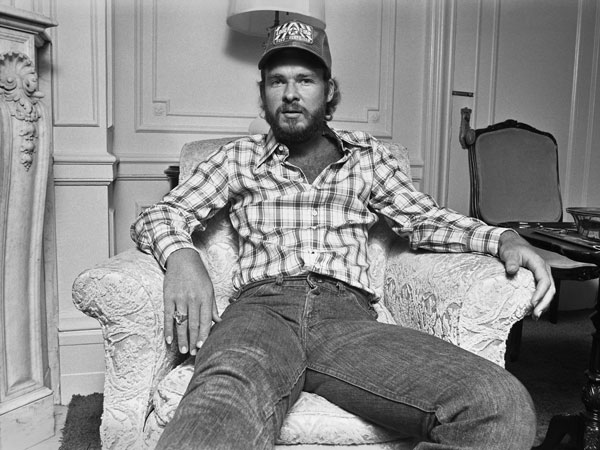
Billy Gibbons
“Hendrix, way back in the day, said that’s where the future of music was going and he was very perceptive.
"You think, ‘Your guitar sounds like Mount Everest and yet you’re playing the skinniest strings. How’s that happening?’"
“With Billy, we all know the guitar sound and his style of Texas blues is quite unique. It’s built on wonderful styles of other blues players, but it’s completely unique.
“He’s the most innovative blues composer that has come along in ’50/’60 years. And he keeps getting better at it. That’s the true testament to his talent.
“I’ve played with him a few times. He’s a really nice guy and a very interesting personality, but just when you think you know that, ‘If I buy this box’ I can sound like him, he shows up doing something different. You think, ‘No! Your guitar sounds like Mount Everest and yet you’re playing the skinniest strings. How’s that happening?’ It’s a personal mojo/voodoo magic, kind of thing.”
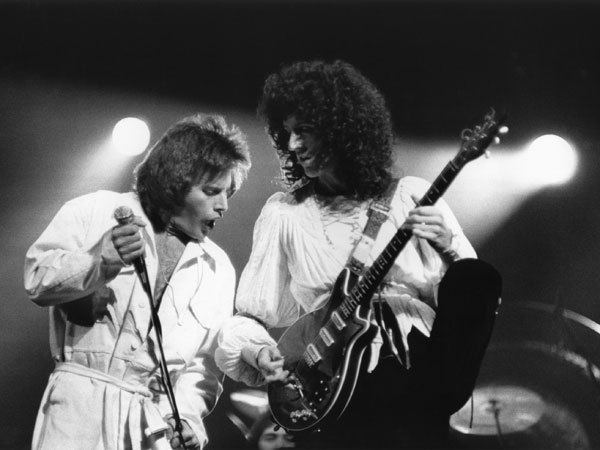
Brian May
“Brian’s got a composing style that you notice right away. His guitar style is famous along with his gear – that famous guitar from the fireplace mantel that he and his dad built. I’ve played it and, unfortunately, I don’t sound anything like Brian when I play that guitar. Only Brian sounds like that.
"He’s one of those guitar players that could mix fun and serious and really pull it off"
“When I was a young player and someone played a Queen record for me the first time, I was utterly floored. There’s just nothing but questions in your mind. Meanwhile, your body is loving it. The visceral experience is just so wonderful and it’s so much fun.
"He’s one of those guitar players that could mix fun and serious and really pull it off. That music can be cathartic and unapologetic and just make you want to get up and kick ass. I love that. That’s rock ’n’ roll right there.”
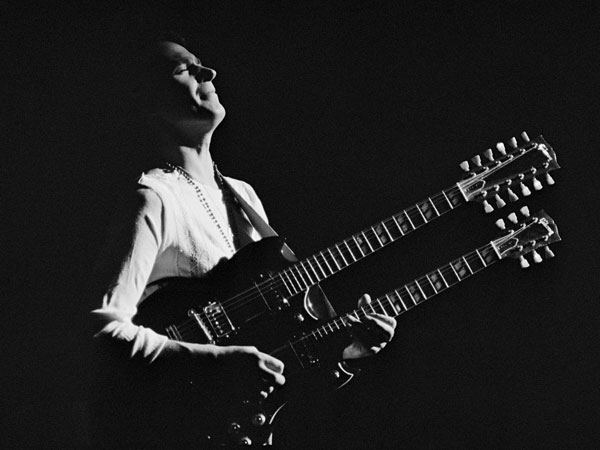
John McLaughlin
“John McLaughlin in the Mahavishnu Orchestra turned my head around at a point where I was a crazy Black Sabbath-addicted, tight jeans-wearing kid.
"People would say, ‘What is that discordant, angular stuff!?’ And I’d say, ‘That’s what I’ve been waiting for my whole life!’"
“We used to play a lot of Black Sabbath and ‘Zeppelin in my high school bands, but when somebody played me the Mahavishnu records for the first time it just opened something up in me.
“Then John, for all his technique – you’ve seen him play acoustic guitar and it’s just completely solid, he’s not faking it in any way – when he picked up the electric guitar, he would play just like Jimmy Page! He would just go right to the edge of his decorum.
“Compositions like Birds Of Fire, just made me feel warm and fuzzy inside, when other people would run out of the room. People would say, ‘What is that discordant, angular stuff!?’ And I’d say, ‘That’s what I’ve been waiting for my whole life!’”
Joe Satriani’s new album “Shockwave Supernova” is released by Sony Music/Legacy on Friday 24 July.
Pre-order Shockwave Supernova today in exclusive bundles at WWW.SATRIANI.COM or at iTunes or Amazon
His nine-date UK tour with special guest Dan Patlansky kicks off at the O2 Manchester Apollo on 1 November. Buy Joe Satriani 2015 UK tour tickets.

Matt is a freelance journalist who has spent the last decade interviewing musicians for the likes of Total Guitar, Guitarist, Guitar World, MusicRadar, NME.com, DJ Mag and Electronic Sound. In 2020, he launched CreativeMoney.co.uk, which aims to share the ideas that make creative lifestyles more sustainable. He plays guitar, but should not be allowed near your delay pedals.





